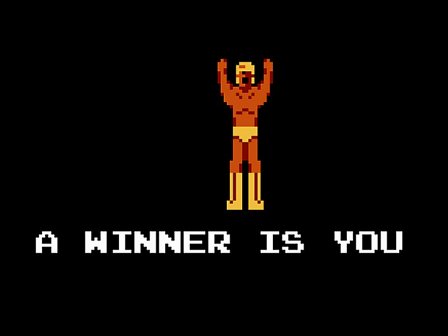How many writers does it take to write one disaster pic? A lot more than you think!
Genre: Action
Premise: After a massive earthquake hits the West Coast, a rescue-chopper pilot travels across the wasteland to save his daughter.
About: San Andreas came out this weekend and bested predictions with 50 million big ones (a good 10 million higher than most estimates). I guess you could say it was an AFTER-shock to analysts. Get it? Cause aftershocks are earthquakes? The film stars the most likable movie star in the business, The Rock, and was directed by The Rock collaborator, Brad Peyton, who worked with the muscled one on Journey to the Center of the Earth 2. While Andre Fabrizio and Jeremy Passmore wrote this draft, it looks like Carlton Cuse (of Lost fame) received final credit, with Fabrizio and Passmore having to settle for story credit.
Writers: Andre Fabrizio & Jeremy Passmore, revisions by Allan Loeb (10/26/11), Revisions by Carlton Cuse (11/02/12), Current Revisions by The Hayes Brothers 7/24/2013
Details: 108 pages
Reading the title page of San Andreas is a bit like reading a screenwriting earthquake. There were enough screenwriters here to fill up a WGA screening. And I suppose that makes sense. The disaster pic, once a staple of Hollywood’s plan to steal your mid-summer money, has become the green-headed step-child, an awkward mumbler of a personality in a world where dark-colored spandex reins supreme.
So the fact that the producers felt they needed to get as many screenwriting eyes on the script as possible should probably be seen as proof of their insecurity. I mean, didn’t Guardians of the Galaxy have just two writers?
What may have given them pause is the fact that they’ve actually scaled the disaster pic back. When the Emmerichs and Devlins of the world were in charge of mass cinematic disaster, they typically chose to take down the entire planet. This approach seems to have been endorsed by Damon Lindelof, who once said, “If you’re going to play in the summer sandbox, the stakes basically have to be the entire world.”
But here’s the thing about that. If the destruction is TOO sprawling, if it covers TOO MUCH surface area, it’s tough to wrangle in a story. You only have two hours to tell a story in a feature-length movie. If you want that movie to resonate emotionally – you probably want to keep things at least somewhat contained. Which is why San Andreas had the chance to excel where all these other destruction movies failed.
The quick plot breakdown for San Andreas is that Tom, a Los Angeles rescue-chopper dude, is reeling from the recent implosion of his marriage to Rachel, who’s since moved on to the incredibly rich and seemingly perfect Patrick.
This has been hard on their 21 year-old daughter, Blake, who’d like for nothing more than to have the family back together again. To add insult to injury, Tom has to cancel a father-daughter sorority function with Blake, forcing her to go with future step-dad Patrick instead.
The two head up to San Francisco, when the first quake hits, pinning Blake inside her car. So what does Patrick do? He gets the hell out of there, saving himself! Blake’s able to call her father and let him know where she is, and after The Rock, I mean Tom, saves his wife, the two head up to San Fran to save their daughter, and hopefully, their marriage!
The first thing I noticed about this is that they changed the names of the main characters. Here in the script, the parents are Tom and Rachel. In the script, they’re Ray and Emma. I’ve heard that changing character names is a trick writers use to improve their chances of getting final credit, since it appears to the WGA arbitrators as if more has changed than actually has.
I’m not saying that’s what happened here. It could just be someone didn’t like those names. But with the original writers usually favored to get credit, and Fabrizio and Passmore not getting it here, it is a little curious.
As for the script, I have to say, it’s not bad. I mean, this isn’t going to win any Oscars, but if there was an award for “best execution of a standard story,” I’d put San Andreas up there with any other screenplay this year. Every beat of this script hits like the heart of an Olympic athlete, which makes sense, since The Rock’s headlining it.
What you’re always running up against when you write a pure action flick is trying to find the emotional core of the story, which of course takes place with your characters. To this end, San Andreas does a solid (unlike the earth in the film) job.
We establish that Tom and Rachel are broken up, but there’s still a spark there. This is a nice dynamic to set up because it gives the reader hope. “Maybe,” they think, “They’ll get back together.” And if there’s a “maybe,” there’s a reason for the reader to keep reading.
Also, when you’ve got a marriage or a relationship that’s fallen apart, you want there to be an origin to that rift. In other words, you don’t want them to just be broken up because you, the writer, need them broken up for your story. There needs to be a reason.
Here, we find out that Tom’s other daughter died five years ago in a rafting accident. Tom wasn’t able to save her, and it destroyed them. Death of a daughter/son is one of the biggest reasons for couples splitting, so it makes sense here. This also buoys the action in the main plot, since we know that Tom isn’t going to let another one of his daughter’s die.
As far as covering this backstory in your script, it’s up to you. Some writers like to add that scene where the hero tells someone what happened. Some writers (Robert Towne in Chinatown), choose not to tell the story at all. It’s also up to you whether you want to tell the whole story or just a sliver of it, leaving it up to the audience to fill in the gaps (something I favor). But the important thing is that you, the writer, know it, so that the story beat feels authentic.
Here, the writers do something interesting. They give the explanation of this backstory to a third party, Blake. She tells it to a guy she’s running around the city with. This is favorable. When the character himself (what would’ve been Tom) tells the story of how he “couldn’t save her” (or whatever the story is), it comes off as overly melodramatic, even cheesy. By having someone else recall it, it feels less manipulative, and a bit more realistic.
From a structural standpoint in San Andreas (sorry, I had to go there), you could practically see the problems the writers dealt with as the script evolved. I’m willing to bet this story was originally relegated to Los Angeles, with Tom on one side of the city and Blake on the other. But the writers quickly realized that the story’s not going to last very long if all a helicopter pilot has to do is fly from one end of Los Angeles to the other.
So they added this storyline where Blake goes up to San Francisco, extending the earthquake all the way up the state. It’s choices like this that aren’t noticed by the average movie-goer and really what screenwriters get paid for. Cause the choice is a 2-for-1. It not only extends the distance between rescuer and rescuee, allowing for a more difficult challenge, but you now get to have the earthquake hit two cities, which doubles the entertainment value of the film.
Look, I’m not here to tell you that San Andreas is the best screenplay ever. But for what it’s trying to do, it does a really good job. I’d definitely recommend it to any screenwriter who’s writing an action script. Read it if you can find it!
[ ] what the hell did I just read?
[ ] wasn’t for me
[x] worth the read
[ ] impressive
[ ] genius
What I learned: When you’re writing an action movie (or really any “genre” type movie), don’t worry about being too “proper” with your prose. The read is supposed to be easy and light, so your prose should reflect that. I loved the way our resident seismologist’s office was described when we first meet him: “Roger’s sitting behind a desk. Tech shit and books everywhere.” Is this going to fly in a Harvard English Literature class? No. But all that matters in a script is that it tells me what I’m looking at. And I know exactly what this room looks like from this sentence.
Scriptshadow 250 Contest Deadline – 60 days left!
Today we have not five, but SIX Amateur Friday contenders. Why? Well, I’ll be honest with you. I don’t think writers are bringing it with their concepts. They’re not bad ideas, but remember, when you’re an unknown screenwriter, you need your idea to STAND OUT. You want it to be exciting and different. Heck, a good half-dozen of Thursday’s IRONIC LOGLINES, which seemed to have been made up on the spot, were better than all the loglines I received in my Amateur Offerings inbox this week. By expanding the field, I’m hoping to increase the chances of finding something good. Good luck to all!
Title: The Patron
Genre: Psychological Thriller/Crime Thriller
Logline: Fresh out of prison, a young Brooklyn artist attempts to restart his career, but his plans are derailed when a seductive older socialite blackmails him into murdering her husband.
Why You Should Read: I know in the past you’ve said you love a good psychological thriller, and this is a dark one with more twists and turns than Taylor Swift’s love life (okay, I guess it hasn’t been that exciting lately). I set out to write something in the vein of classics such as “Fatal Attraction” and “Basic Instinct”, but with a different, unexplored central dynamic – specifically, one between an older woman and a younger man (40s and 20s, respectively). The power imbalance between the characters due to her wealth and his recent incarceration only serves to heighten the conflict in the story. The script received high-enough ratings to place it on the Top List page of the Black List website; I humbly submit it here in hopes that it will be met with similar regard. On a final note, I was a Quarterfinalist in the 2013 Nicholl competition, so I’d like to think that my writing skill is at a level that won’t leave you wanting to gouge your eyes out. (Sorry to end with that disturbing image, but it felt appropriate).
Title: THE THREE DEGREES OF SEPARATION
Genre: Psychological Thriller
Logline: To help her sisters cope with their parents divorce an intelligent and highly imaginative teenager fabricates fantastic stories, not realizing elements of those stories are manifesting in the home and drawing their father deeper and deeper into the dark world of his id.
Why You Should Read: Some of you may recognize this script from when it was featured last year on AOW. I received many notes that weekend for which I am eternally grateful. I put it away the script for some months and worked on other projects while trying figured out how to address the story with a whole new approach. Needless to say I woke from a dream one night to find none other than Billy Wilder standing at the foot of my bed. Together Billy and I took the story by it’s horns and wrestled it into submission. We even gave it a new title. The sun came up, Billy was gone and The Three Degrees Of Separation was ready for discerning eyes. Love it or hate it, it will leave an impression on you. I think you will love it. But if you hate it, blame it on Billy.
Title: Damn Nation
Genre: Horror/Action Thriller
Logline: Five years after a plague has overrun the United States, turning most of the nation into feral vampiric creatures, a Special Ops unit from the President’s current headquarters in London is sent back into the heart of the US in a desperate attempt to find a group of surviving scientists who claim to have found a cure for the disease… but not everyone wants to see America back on its feet.
Why You Should Read: I believe screenplays are evolving. With the advances of technology in the last couple of decades such as the internet, computers, ipads, smartphones, etc, screenplays can be more than words on paper, they can be visual and even interactive experiences. I’m not the first and I won’t be the last person to integrate artwork into my screenplay, but I think this approach, if done right, can add a lot of value to a project. Integrated artwork is just the tip of the iceberg though. I believe soon people will be adding a lot more elements, such as photo references, storyboards, video, sound effects, music, and other audio-visual components embedded into their scripts. The possibilities are endless.
However, I know that my view on things is going to be vastly unpopular right now. I think most people will have an old school attitude and believe that writers should write, leaving the fancy bells and whistles to someone else.
With that said, I do believe nothing is more important than the words themselves. Above all else, I hope my script is judged on the words, not the images. Everything else I’ve added is just a bonus.
Title: Sarah’s Getting Married
Genre: Comedy
Logline: Harry, wrongfully accused of embezzlement, escapes from prison in order to get to his daughter’s wedding and walk her down the aisle.
Why You Should Read: Concept is king. It’s something we’ve all heard, and I feel this script has a great concept that can really sell. This is an idea that I’ve had for years, and it has gone through many changes. But I finally came up with a good, fun way to tell this story and I want to share it with everyone who is willing to take a look at it. Besides, who doesn’t like a good comedy that has heart?
Title: Lifeline
Genre: Dramedy
Logline: A womanizing dockworker is forced to take in his estranged, brain-injured father after the old guy is ousted from a nursing home.
Why You Should Read: I’ve placed my story in the port city of Halifax, Nova Scotia because I wanted the setting to set the tone of the script and influence the characters. It’s a “relationship” dramedy that’s fun and poignant and has a lot of heart (I hope!) Sorry, no guns, explosions or time travel. I’ll save that for the rewrite!
Title: THE PINSTRIPED PRIMATES
Genre: Family
Logline: Three talking gorillas escape from captivity and enter the world of professional wrestling. The two older brothers – managed by the intellectual younger brother – take a run at the tag-team championship.
Why You Should Read: It’s something different for both of us. For me, it’s a shot at lighter writing. For you, it’s a chance to escape from the usual AOW ghetto of contained thrillers, gross-out comedies, and derivative horror. Have you ever reviewed an amateur Family screenplay? — Also, this script Quarterfinaled in the 2014 Fresh Voices contest. This is intended as live action with latex makeup, like the original Planet Of The Apes – not animation.
Yesterday’s Irony Logline Winner has just been announced. Go back to yesterday’s post if you missed the competition. Please keep all reactions to the winners in the above linked post. All comments today are limited to Insatiable discussion. Thanks!
Genre: Horror
Premise (from writer): When a law student’s girlfriend mysteriously vanishes from a truck stop diner, he suspects a shady trucker is to blame. But as he races to save her life, he discovers that the only thing more terrifying than her captors is the reason she was taken.
Why You Should Read (from writer): I need the help of the ScriptShadow community! I like scary things and enjoy a good horror film. I’ve been writing for quite some time and have advanced in some of the more well known contests including Nicholl. INSATIABLE was a semifinalist in Austin in 2011. A revised version was a finalist in ScreamCraft last summer and a semifinalist in Page. It has received some positive feedback, yet here it sits on my laptop. My question is this — is the story worthy of a movie? Can it get over the hump? Is the script worth revising or should I consider it a building block, leave it on my laptop, and move on? Please help!
Writer: Michael Morra
Details: 110 pages
I’ve always been a big fan of Michael Morra’s writing. He’s a guy who I’ve felt has been on the verge of breaking through for awhile now. And when you open one of his scripts, you’ll see why. He knows how to pull you in (what a great opening scene!), he writes in a way that yanks your eyes down the page, his writing is descriptive but never overbearing. And he writes in one of the most marketable genres – horror, a genre he clearly knows well. I feel like if a guy like Jason Blum gave this guy a shot, he’d deliver.
So what about Insatiable? Does it live up to my high expectations of Michael? Let’s find out.
Insatiable starts out hot. And I mean literally. At a popular truck stop diner just outside of the Appalachian Mountains, a dilapidated pregnant woman stumbles into the station, grabs one of the pumps, douses herself with gasoline, and then sets herself on fire. Without even paying!
As we ponder whatever the hell THAT was, we jump a few counties over to 24 year-old Jake. Jake’s one of those lucky young men who won the genetic and financial lottery. He’s got a pretty perfect life, and he’s about to officially share it with his farmer’s daughter girlfriend, Brooke, who he plans to propose to this weekend during an impromptu vacation with their friends Austin and Claire.
When they stop to grab a bite to eat (at that, um, exact same truck stop), Brooke drops a bombshell on Jake. She’s got one of those human beings growing inside her. Yup, she’s preggies. Jake doesn’t take the news nearly as well as she expected, a fight ensues, and Brooke storms outside in anger.
Jake decides to let her cool off, until a bunch of time goes by and Brooke still hasn’t returned. He heads outside, looks for her, and finds scattered drops of blood instead. He calls in the cops, who key in on a well-known trucker named Winston. Winston looks all sorts of guilty but they can’t seem to find any evidence linking him to the disappearance.
Jake’s not so sure though, and decides to head up to Winston’s house to get to the bottom of this. Meanwhile, Austin and Claire stay local and snoop around, looking for clues.
Just when it seems like Winston might not be their guy, Jake discovers a deep dark secret. That Winston’s wife is… well, how do I put this lightly – A FUCKING MONSTER! A monster who feeds off the blood and guts of the living. It’s her who’s kidnapping pregnant woman, so she can finally have the baby her husband was never man enough to give her.
One of the ways you can spot a writer on the verge is that they’re not precious about their material. Newcomers will hold tight to even the most banal idea. Every character, every page, every sentence, is treated as if Shakespeare himself wrote it.
Seasoned writers want to know if something’s not clicking so they can stop wasting their time and move on to the next idea. Which is the question Michael has posed to us today.
Unfortunately, the answer isn’t easy but I can definitely see why this script has advanced over the majority of the competition only to fall short of the final prize. Michael’s clearly a good writer, but there’s something about this script that feels – I don’t know – too familiar.
Horror is really a genre where you have to bring one of three things…
1) A fresh idea
2) A fresh take
3) A fresh voice
This idea doesn’t feel fresh to me. A woman gets kidnapped. That’s common. And then there’s some scary creature involved. Also common.
As for the “take,” I suppose it’s a little bit unique (I’ve never seen a bat creature before) but even that brings me back to the winged creature in Jeepers Creepers.
And finally, while the writing is excellent, I wouldn’t say the voice is unique. When you read a script like, say, February, there’s a very distinct flavor to that writing that you haven’t experienced before. And I’m not one to say that your voice HAS to be unique to sell a script. I see scripts sold all the time from writers with no voice. But, like I said, the script does need to be fresh in one of these three areas: idea, take, voice, and while Insatiatble knocks on the door of a couple of those, it never breaks through.
Now as a pure script, the setup and structure are solid, which is why a screenplay like this – while not perfect – advances past 90% of the material in a screenplay competition.
We have a girl that goes missing. A girl in peril always works. This then gives our characters a clear goal – find the girl. The stakes and the urgency emerge naturally from that. We’re even reminded that if she’s not located within 48 hours, their chances of finding her alive are cut in half.
And we’ve got a solid mystery box too. Why would a pregnant girl set herself on fire rather than live? What was it, exactly, that was growing inside of her?
I guess the reason this perfectly sound structure didn’t work on me is a combination of a couple of things. First, this isn’t my type of movie. Unless a creature-feature is done flawlessly, I’m more into the “real life” horror variety. I’m much more afraid of, say, the family in Texas Chainsaw Massacre since, theoretically, that could really happen. I know that I’m never going to run into any bat people any time soon, so I’m not nearly as scared.
And two, there was nothing new about the story. As I read through it, all I kept thinking was, I’ve been down this road before. And it’s for that reason that I’d probably encourage Michael to move on to the next idea. Insatiable puts his solid writing skills on full display. But this isn’t English class, where you get marks for “solid.” The movie world wants to be WOWED. They want something they’ve never seen before. And Insatiable, at least to me, didn’t meet that criteria.
I still wish Michael the best and encourage him to keep writing. And also, don’t just go by my review here. I want to hear from people who like creature features and get their take as they’re more familiar with the genre. Good luck, buddy. ☺
Script link: Insatiable
[ ] what the hell did I just read?
[x] wasn’t for me
[ ] worth the read
[ ] impressive
[ ] genius
What I learned: The “sort of” ticking time bomb that’s still a ticking time bomb. You know I like ticking time bombs. Create a deadline for your characters to achieve their goal or else everything goes to shit. It’s a tried and true device. But sometimes, when you use an EXACT TIME DEADLINE, it can feel artificial. “Man has 37 hours to deliver the drugs or the world explodes!” A nice alternative are these “sort of” ticking time bombs where there isn’t an exact time, but an implied time. Michael does this here and they did this in Taken as well. The cop in Insatiable says, “If we don’t find her within 48 hours, our chances of finding her alive are cut in half.” In Taken, Liam Neeson’s CIA buddies tell him, “If we don’t find her in 72 hours, stats say she’s probably gone forever.” Again, this isn’t a HARD TIME – it’s just a baseline. But it plants that seed in the audience how important time is without creating a LITERAL ticking time bomb that can seem artificial.
Yesterday we had a mini-contest to come up with the best ironic screenplay idea. The winner got an automatic bid into The Scriptshadow 250.
Well the winner(s) have been announced. I decided to create a new post so congratulations comments wouldn’t get buried in the previous post.
***AND THE WINNER IS: “NO ANIMALS WERE HARMED” FROM RIPLEYY!***
A trip to Eastern Europe goes horribly wrong for a group of PETA employees when they find themselves being hunted down by blood-thirsty animals
***SECOND PLACE: “BORDER PATROL” BY FRANCIS B!***
A tough and remorseless US Border Patrol Agent is kidnapped by a lower class Mexican family and forced to lead them safely on the other side of the Rio Grande.
Both writers get AUTOMATIC BIDS into the Scriptshadow 250. Good job, guys!
I had a lot of fun reading the ironic loglines in last week’s Three or Out post. So much so that, today, I’d like to expand on that. A good ironic premise stands out so much from other ideas, that the more you can practice these puppies, the better chance you’ll have at constructing a “must-read” script. Remember how down I was on dramas yesterday? Well, if you add irony do your dramatic premise, it instantly becomes a hundred times more readable.
Unfortunately, irony isn’t an easy concept to grasp. Alanis Morisette wrote an entire song about irony only to later find out that her definition of it was wrong. Famous literary theorist J.A. Cuddon says that irony “eludes definition.” There’s even a website dedicated specifically to whether things are ironic or not. You can submit an ironic observation and people vote on its irony quotient.
Indeed, when I looked up definitions online, I found dozens, if not hundreds, of varying takes on the elusive trope. However, when in doubt, go back to the good old English Oxford Dictionary. And while it’s not a perfect definition for our purposes, it’s pretty strong: “A condition of affairs or events of a character opposite to what was, or might naturally be, expected.”
A few examples:
1) A suicide prevention hotline worker eagerly prepares for his own suicide.
2) A lowly janitor is the only person at MIT to solve an impossible math equation.
3) The world’s first unsinkable ship sinks on its maiden voyage.
4) A lawyer who cannot lie for a day.
5) A priest becomes the city’s most ruthless criminal.
I think you sense what’s coming. That’s right. Whoever comes up with the best ironic logline gets an automatic entry into the Scriptshadow 250. It doesn’t have to be the premise you enter the contest with, but it certainly wouldn’t hurt. Although the final decision will be up to me, please up-vote your favorite premises to move the best ideas to the top. Good luck and have fun!
To learn more about The Scriptshadow 250 Contest, go here.
***AND THE WINNER IS: “NO ANIMALS WERE HARMED” FROM RIPLEYY!***
A trip to Eastern Europe goes horribly wrong for a group of PETA employees when they find themselves being hunted down by blood-thirsty animals
***SECOND PLACE: “BORDER PATROL” BY FRANCIS B!***
A tough and remorseless US Border Patrol Agent is kidnapped by a lower class Mexican family and forced to lead them safely on the other side of the Rio Grande.
Both writers get AUTOMATIC BIDS into the Scriptshadow 250. Good job, guys!







